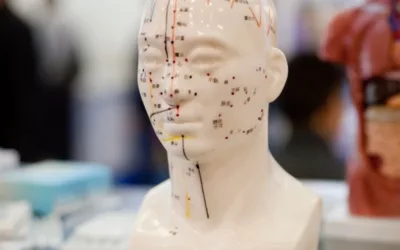MUSCULAR SYSTEM OVERVIEW | BODY MUSCLES
Muscles are part of our bodies that allow us to move. The muscles are made up of special tissues that can contract or shorten when they receive a signal from the brain. The muscles are attached to bones by stretchy tissue called tendons. When the muscles contract, they pull on the tendons, and the tendons in turn pull on the bones and cause our limbs to move. Muscles are dependent on the nerves which supply them.
Nerves stimulate the muscle to contract and they carry sensory information from the muscles to the brain so that muscular contractions and movements are coordinated. If the nerve supplying any muscle is paralyzed or severed, the muscles will lose its power of movement.
There are more than 640 muscles and they make up about 35% to 50% of a human’s weight whereas muscle contractions account for 85% of the heat produced. Most muscles hardly ever work alone. Muscles can get shorter and pull, but they cannot push. Most muscles are arranged in opposing teams, known as antagonistic muscles. One team pulls the body part one way while the other team pulls it back again. As each team pulls, the other team relaxes and gets stretched.
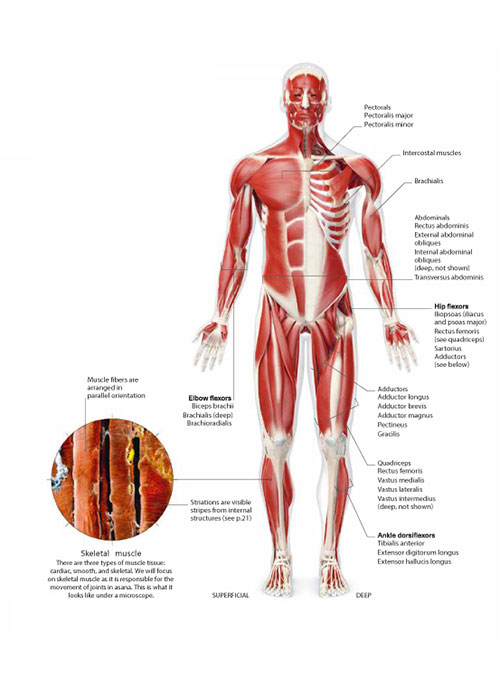
Illustration from Science of Yoga by Ann Swanson
What are the 3 types of muscles in the body?
Our bodily needs demand that muscles accomplish different chores, so we are equipped with three types of muscles:
- SKELETAL MUSCLE
- SMOOTH MUSCLE
- CARDIAC MUSCLE
- Skeletal muscles are the only muscles that can be consciously controlled. They are attached to bones, and contracting the muscles causes movement of those bones.
- Smooth muscles are found in the walls of hollow organs throughout the body. Smooth muscle contractions are involuntary movements triggered by impulses that travel through the autonomic nervous system to the smooth muscle tissue.
- Cardiac muscles found only in the myocardium, contracts in response to signals from the cardiac conduction system to make the heart beat.
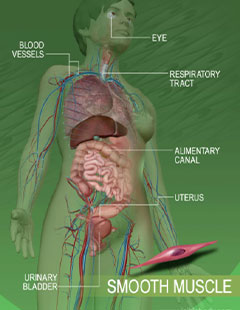
What are the 3 Main Functions of the Muscular System?
The main functions of our muscles are to MOVE but not only. Each type of muscle has a crucial role in the function of the body.
The 5 main functions of the muscular system are as follows:
- Motion: The main function of muscles is motion, for example in conjunction with the bones for walking. Muscles may work alone e.g. the diaphragm for breathing, and the heart for circulating blood.
- Stabilizing: Muscles help maintain body positions.
- Thermogenesis: Muscles produce body heat.
- Support: Muscles support soft tissue, such as the abdominal wall and pelvic floor.
- Guard Entrance and Exits: Muscles are also involved in swallowing, defecation, and urination (sphincter muscles).
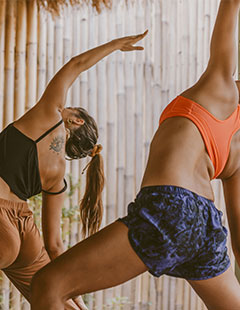
What are the major muscles of the body?
It is vital to know the major muscle groups especially in improving your body. Knowing the right kind of exercise in every muscle group has a powerful impact.
You must focus on each muscle group and here are a few reasons why:
• It prevents injuries
• Improves posture
• Prevents muscle imbalances
• Refrain from aches and pains
To achieve these benefits, it is important to know the body’s five (5) major muscle groups. Chest, Back, Arms & Shoulders, Abs, Legs & Buttocks, and their functions. As it’s an important part we will explore that in a futur article – Stay Tune!
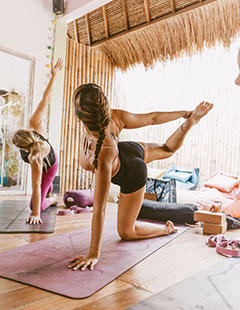
Anatomy Course
Wish to combine Anatomy knowledge with yoga? Join one of our Vinyasa Yoga Teacher training
110/150hs Vinyasa Yoga Teacher Training
- March | June | July | Nov 2024
- Immersive Life Acceptance
- 12/17 days Vinyasa Training Course
- Nusa Lembongan, Bali
- 20hs of Yoga Anatomy with Rachel Ellery
- Asana Study Lab – Biomechanic
- History, Philosophy
- Teaching tools & lots of practice
- Yoga Sequencing rules & creativity development
From 1.148$ US
Super Early Bird
More articles
Keep reading
Yin Yoga TCM 5 Elements
Chinese medicine and Yin yoga have emerged as powerful allies in today's fast-paced world, where the quest for holistic well-being is more important than ever. With its rich, ancient wisdom, Chinese medicine offers profound benefits that go beyond the physical. Yin...
What is yin yoga
What is Yin YogaIntroduction to Yin Yoga: Benefits and Practice Are you looking for a yoga practice that combines deep relaxation with improved flexibility? Discover what Yin Yoga is, a gentle yet powerful discipline that transforms both body and mind. This Yoga...
Hinduism and Yoga
Discovering Divine Threads: Yoga and Hindu DeitiesEmbark on a spiritual journey as we unravel the sacred connection between yoga and Hindu deities. This article compiles 29 key points, each unveiling the profound relevance of gods like Brahma, Vishnu, Shiva, and...

